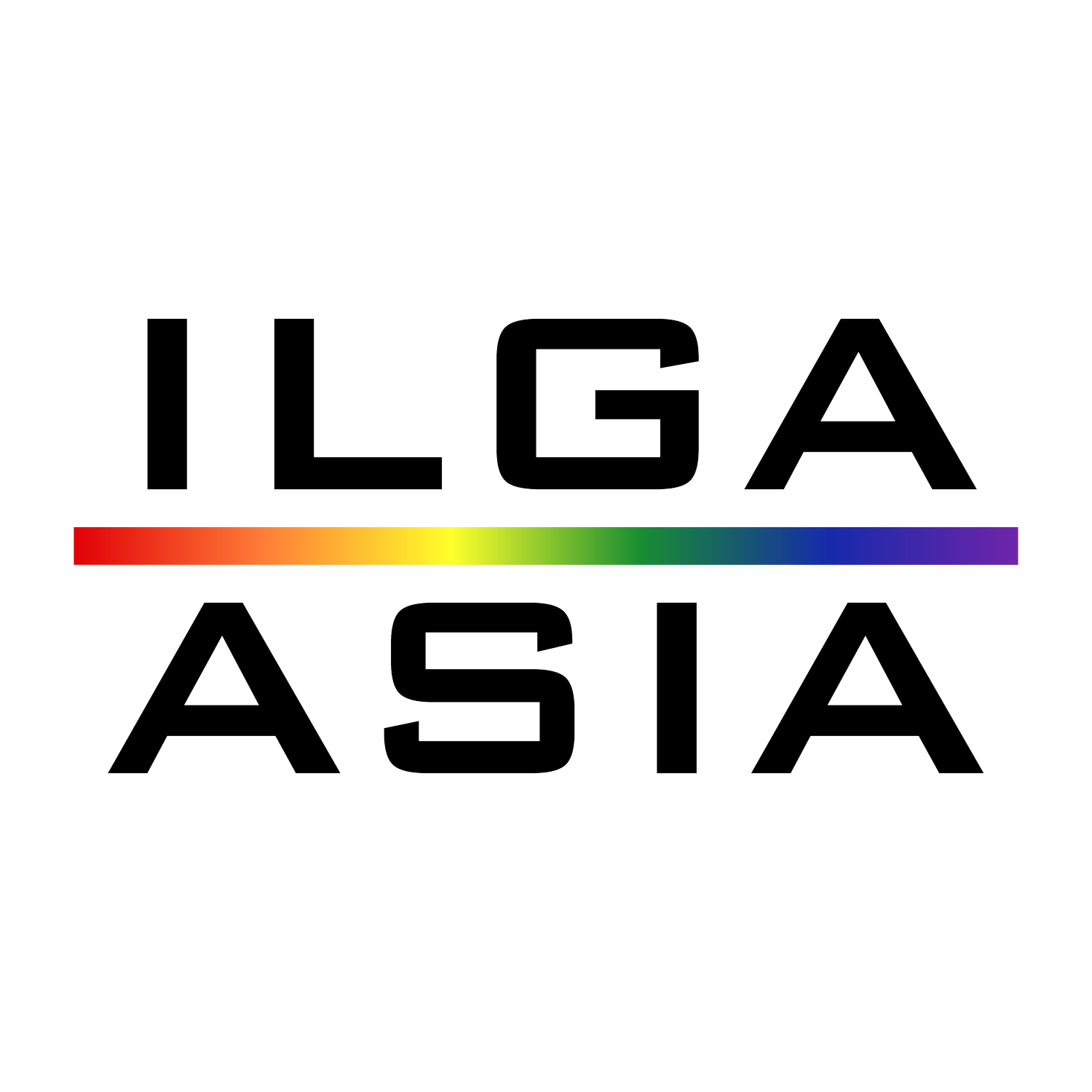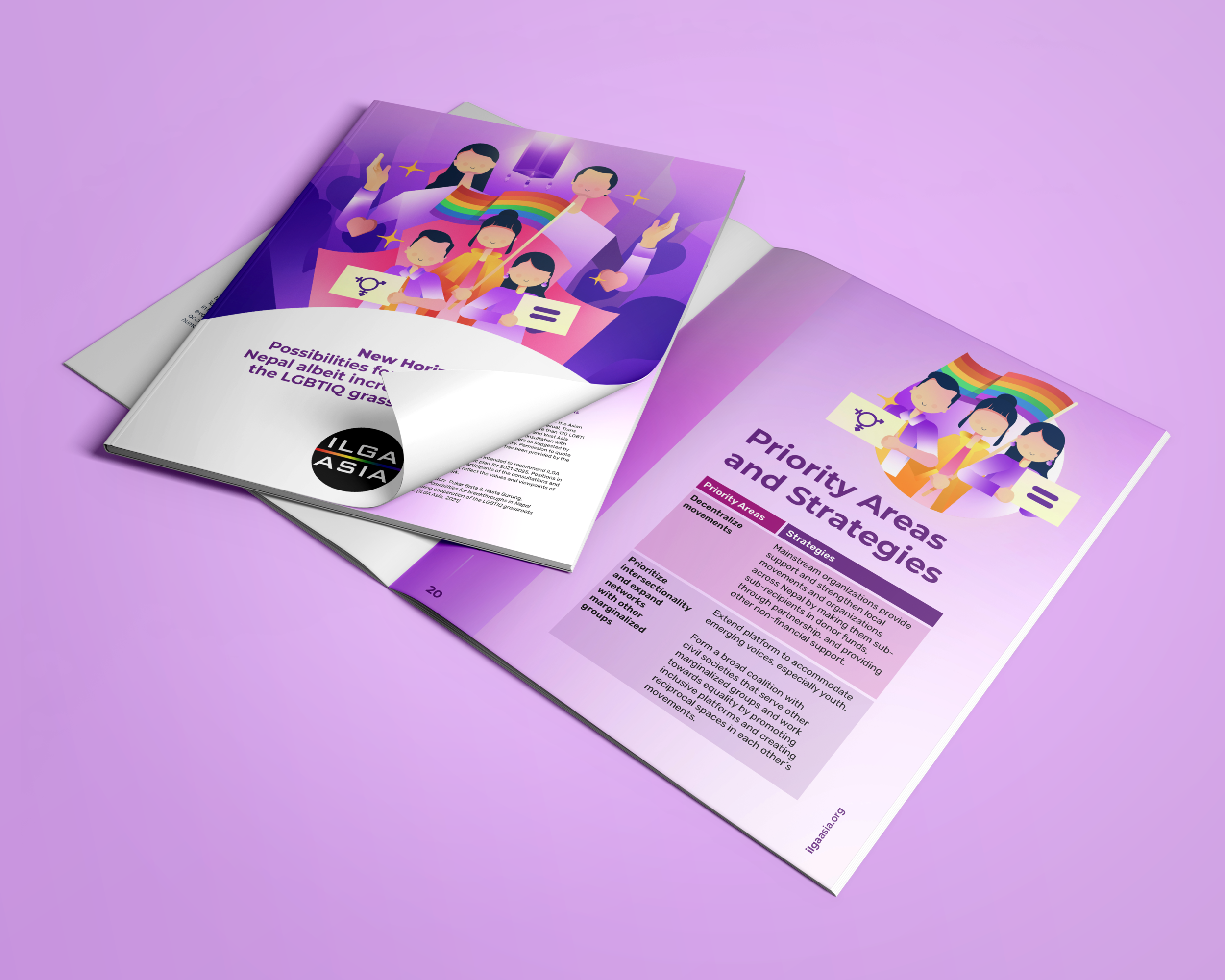New Horizon: Possibilities for breakthroughs in Nepal albeit increasing cooptation of the LGBTIQ grassroots movement
Executive Summary
In this country report, a snapshot of the legal and political landscape, religious perspective, and sociocultural positionality of LGBTIQ people contextualize strategies, movement priorities, and challenges faced by LGBTIQ people, community, and organizations in Nepal. In-depth interviews with 12 seasoned human rights activists and experts provide deeper insights into key barriers and gaps in movement advancement, as well as opportunities for future interventions, which inform and undergird recommendations of this report. Furthermore, recommendations are made paying special attention to the inspiring new developments within the movement and risks of co-optation they may face. The findings and recommendations provide activists, community-based organizations, and other stakeholders efficacious tools to ensure the social protection of LGBTIQ people, safeguard their human rights and promote LGBTIQ movements.
Even though major legal and political advancements favoring LGTBIQ people were achieved in the last two decades, Constitutional rights and Supreme Court verdicts have not been implemented, conditions of LGBTIQ people have not improved while further marginalization of a large segment of the LGBTIQ community continues. While class, caste, geographical privileges, and other sociocultural capital, protect some segments of the community from outright discriminations and violence, in the public sphere LGBTIQ people wholly lack political space. In the private sphere their sexual orientation, gender identity and expression, and sex characteristics are often shunned and repudiated.
These findings indicate an unequivocal need for robust community organizing and intersectional coalition building, for which alteration in funding mechanism and modalities, as well as its expansion and diversification, is needed. In this report, the dearth of funds for LGBTIQ activism and advocacy in the Global South is further complicated by the unequal power dynamics in global philanthropy. Exploring the impact of these issues on local organizations, this report urges funders to acknowledge power imbalance and provide flexible and long-term funding that is based on local needs.
All findings in this report overlap with the nine key priority areas/strategies identified by twelve key informants, which are: decentralization of movements; prioritization of intersectionality and coalition building; comprehensive school curricula revision; implementation of laws and Constitutional guarantees; representation in the Parliament; livelihood development; documentation of human rights violation; resource material development; and strategic engagement with the media.
As LGBTIQ people are situated on the margins of heteronormative social arrangements, several recommendations within and between six identified fields in this report are found to be intertwined. LGBTIQ movements have often created a culture that is often at odds with normative social relations and values, and currently, activists are making impressive headways on this front. As these newer meanings and ideas often meet with resistance from the status quo, this report recommends monetary support for the creation of spaces where the exchange of new ideas amongst intergroup activists and leaders about ideological differences can be shared and local knowledge/ideas can be nurtured and further developed. Additionally, building on the spirit of inclusivity, local knowledge must be given space at international fora, with an explicit aim to strengthen mutual learning, solidarity, and movement building.
Concurrently, a clear need to capture the growing interests amongst diverse stakeholders who are willing to advocate for LGBTIQ rights has also been identified, indicating a need to ramp up awareness-raising campaigns amongst allies and organizations. An intersectional approach to solidarity building and community organizing by highlighting structures of dominations and common threads that unite respective movements has been identified as an effective strategy to build broad coalitions. Additionally, by centering voices of those who are most negative impacted by socially embedded hierarchies and prioritizing social inclusion of the entire community, solidarity should be channeled to advocate for proportional representation in the political sphere and in private, public, and nongovernment organizations; economic upliftment of LGBTIQ people through the inclusion in hiring and organizational policies that go beyond tokenism; inclusion of the community in Gender Equality and Social Inclusion policies; ending medical discrimination and disenfranchisement of the community.




